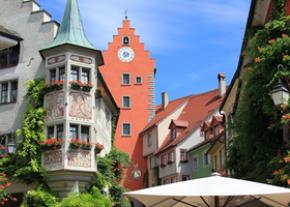Often considered as the de facto political and financial leader of Europe, Germany is a hugely popular choice for professional expatriates, seeking out a financially secure country with a wealth of opportunities.
A founding member of the body that later became the EU, part of the Schengen Area, and a member of the eurozone, through both positive and negative ways the country and its leaders have played a big part in shaping Europe over the years.

The German Economy
With a social market economy boasting a highly skilled labour force, Germany is the world’s fourth largest economy, and the largest in Europe. The country leads the world in several industrial and technological sectors, making it the second largest exporter, and third largest importer of goods in the world. The services sector is the biggest contributor to German GDP, standing at around 71%, while industry stands at around 28%, and agriculture at 1%.
Internationally known German companies include Volkswagen, E.On, Daimler, Siemens, BASF, BMW, Allianz, and Deutsche Bank, but there are also many other Germany holding companies that own various local brands and organisations around the globe. As a result, many expatriates find themselves coming to Germany to continue, or commence careers within multinational firms, offering local insight and cultural understanding of their home country and region. However, in recent years, the capital Berlin has become well known for its technology start-up culture, and many new arrivals to Berlin focus on this sector, often arriving without securing employment.
A developed country with a very high standard of living that boasts a good standard of public services, for the most part, mild winters and warm summers characterise Germany’s climate. As a result, the majority of expatriates focussing on Germany do so for professional reasons, rather than retirement.
